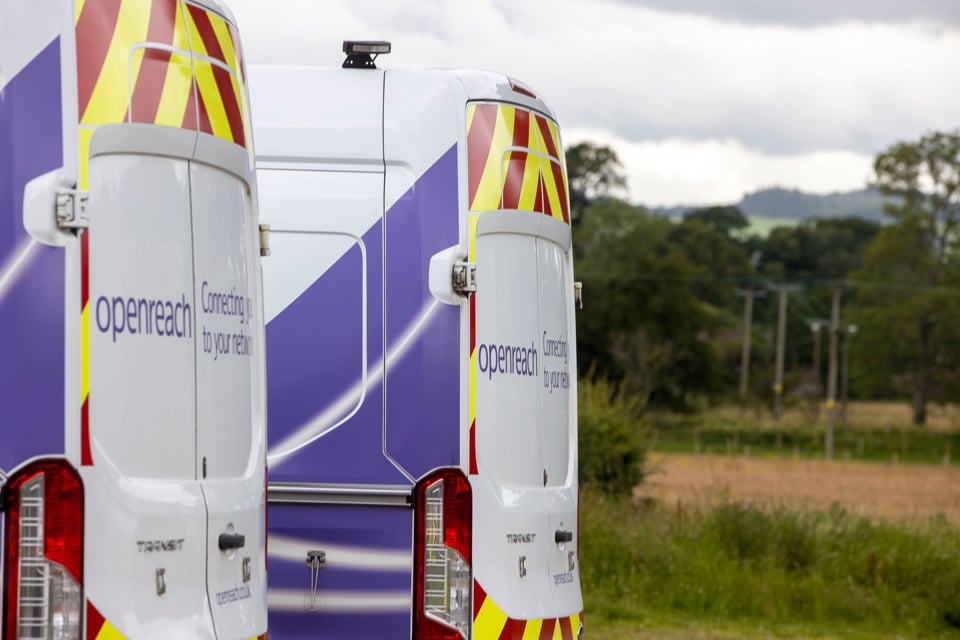Hundreds of Rivus employees face the stark choice of taking a cut-rate redundancy payment or leaving empty-handed as the BT Group contract transfers to Holman.
The Rivus staff impacted by the loss of the BT Group contract have faced weeks of uncertainty over their futures while an argument has raged over whether TUPE – Transfer of Undertakings (Protection of Employment) – regulations apply or not.
Fleet News reported just over a week ago how Rivus had been unable to reach an agreement with Holman over the future of hundreds of employees and potential redundancy costs.
At the time, Rivus told Fleet News that BT was willing to make a payment that would cover payment in lieu of notice (PILON) and up to 68% of an individual’s redundancy pay.
Holman is prepared to accept the transfer of just over 60 roles under TUPE regulations, according to Rivus.
Fleet News understands that 500-plus employees are being made redundant as a result of the BT contract being transferred.
“Should any colleague choose not to accept the package, then Rivus will move forward as though a TUPE transfer has happened,” a Rivus spokesperson said.
In a leaked memo, dated Friday, September 15, from Rivus CEO Victoria Knight to the impacted staff, she explained that Holman continued to dispute any legal responsibility under TUPE for the vast majority of Rivus staff impacted by the BT Group contract loss and any redundancy pay.
She also added in the memo, seen by Fleet News, that legal advice meant it was unable to step in and pay any redundancy due to employees.
BT Group announced in March that Holman had been awarded the contract to maintain its commercial vehicle fleet, while it would be transferring the management of its company cars to Arval UK, ending its long-standing relationship with Rivus from tomorrow (Saturday, September 30).
Rivus workers employed on the BT company car team, believed to be fewer than 10 employees, will be transferred under TUPE to Arval, with any redundancy costs covered by the new contract provider, however Holman is adamant TUPE does not apply and informed Rivus of its position on August 11.
Holman has been asked to comment but is yet to respond.
When does TUPE apply?
The Advisory, Conciliation and Arbitration Service (ACAS) states that the two types of transfer where TUPE applies are: business transfers and service provision changes.
Business transfers are where a business or part of a business moves from one employer to another.
Service provision changes is where contracts are taken over. ACAS explains that this can be because: a service provided in-house is taken over by a contractor (known as 'outsourcing'); a contract ends and the work is transferred in-house (known as 'insourcing'); and a contract ends and is taken over by a new contractor (known as 'retendering').
Holman, according to Rivus, argues that TUPE does not apply, because it believes the activities that it will carry out for BT are “not fundamentally the same” as those carried out by Rivus.
It will use digital solutions as the core foundation of its service provision for BT and it does not operate any garages. Instead, it will leverage a distributed network of approximately 1,200 third-party garages.
Rivus told Fleet News that “it is still of the view this is a genuine TUPE transfer”.
“Unfortunately, as Holman has only accepted TUPE for 63 hand-picked colleagues, we have tried to reach a pragmatic solution with all parties to reach the best possible outcome for our colleagues.”
The spokesperson added: “Our colleagues now have an individual choice to make and as such, should be afforded the time and space to make that choice without pressure or outside influence.
“Our colleagues have been advised of their options and been given access to legal advice to fully understand what this means for them personally.
“Should any colleague choose not to accept the package, then Rivus will move forward as though a TUPE transfer has happened.”
This would mean the employee effectively leaving empty-handed as they sought to legally challenge the package currently on the table.
Redundancy costs
Private equity company Aurelius acquired Rivus, formerly BT Fleet Solutions, from BT Group in 2019.
Fleet News understands that a fleet service agreement between Rivus and BT Group made the telecoms giant responsible for any redundancy costs should the contract be lost to another provider.
BT Group has been asked to comment but is yet to respond.
However, Rivus previously told Fleet News that BT was willing to make a payment that will cover PILON and up to 68% of an individual’s redundancy pay.
Several sources have suggested to Fleet News that BT Group were prepared to pay Rivus employees their redundancy in full, but not PILON.
The reason employees are therefore being offered a percentage of the redundancy payment is because Rivus has used that cash to pay PILON, claim the sources.
However, Rivus strenuously denies this. A spokesman told Fleet News: “This is incorrect and BT and Rivus are in alignment as to how the funds have been allocated to individuals.”
In July, Rivus revealed a major restructure in an effort to cut costs after struggling to replace business lost from losing the fleet maintenance deal with BT Group.
The company announced it would be closing 48 of its light commercial vehicle (LCV) garages, cutting its existing network by more than half, from 78 to just 30 sites including its heavy goods vehicle (HGV) network. Fleet News understands that this impacts around a further 100 employees.
Rivus says it fully accept their liability for these employees, and any associated redundancy costs which will be paid in full.





















Login to comment
Comments
No comments have been made yet.